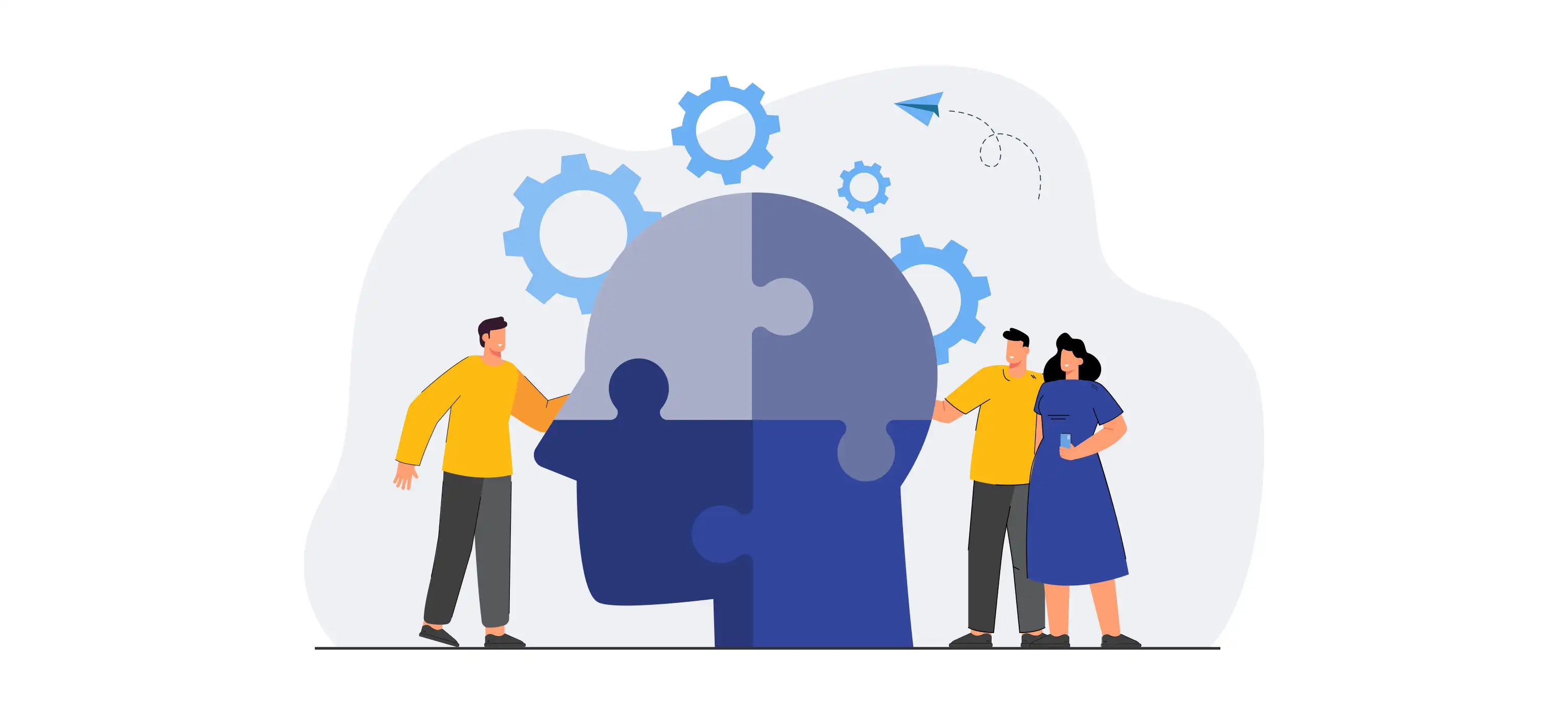 Neena Raj
Aug 01, 2024
Neena Raj
Aug 01, 2024

Emotional intelligence (EQ), also known as emotional quotient, refers to our ability to understand, use, and manage our own emotions in positive ways. It encompasses various aspects like self-awareness, social awareness, and relationship management. Having high EQ plays a crucial role in navigating various aspects of life, from building strong personal relationships to achieving professional success.
While some individuals may seem naturally gifted in emotional intelligence, the good news is that EQ can be developed and honed throughout our lives. This can happen through various avenues, including corporate training programs, academic courses, personal reflection, and simply navigating the diverse experiences life throws our way.
Hence this blog will explore 12 key signs of emotional intelligence. Pay attention, and you might be surprised by how many of these qualities you already embody!
You may also like: How to Improve Your Soft Skills in the Workplace
Here are the 12 Signs of Emotional Intelligence;
Emotional intelligence isn't simply about feeling emotions; it's about understanding, expressing, and managing them effectively. Having a rich emotional vocabulary acts as a cognitive tool for individuals with high EQ. It allows them to precisely identify and articulate their emotional states, moving beyond generic terms like "bad" to more specific nuances like "frustrated," "disappointed," or "overwhelmed."
This linguistic precision not only clarifies one's emotional landscape but also facilitates clear and accurate communication with others. By expressing emotions precisely, individuals with high EQ foster deeper understanding, build trust, and enhance problem-solving capabilities in personal and professional settings.
Individuals with high EQ exhibit a genuine and sustained interest in others. They actively engage in listening, asking thoughtful questions, and demonstrating sincere concern for the experiences and perspectives of those around them. This curiosity extends beyond mere politeness; it represents a deeper desire to understand the intricate tapestry of human experience, woven from diverse thoughts, feelings, and life stories.
By engaging in this inquisitive approach, individuals with high EQ build empathy, foster connection, and create a sense of belonging, laying the foundation for strong and lasting relationships across various contexts.
Navigating the complexities of life without self-awareness is akin to attempting to navigate a maze blindfolded. Individuals with high EQ possess a keen understanding of their internal landscape, including their emotions and their triggers.
They can recognize their emotional state in the moment, identify the situations or individuals that evoke specific emotions, and anticipate the potential impact of their emotions on themselves and others. This self-awareness empowers them to manage their emotions constructively, make informed decisions, and cultivate healthier relationships, both personally and professionally.
Developing a comprehensive understanding of your strengths and weaknesses is a pivotal aspect of emotional intelligence. Individuals with high EQ engage in honest self-assessment, acknowledging both their unique capabilities and their areas for improvement. This self-awareness empowers them to leverage their strengths to their full potential, maximizing their effectiveness and performance in various domains.
It also allows them to identify and address their weaknesses, actively seeking opportunities for learning and growth. By taking ownership of both their strengths and weaknesses, individuals with high EQ navigate challenges with greater resilience, resourcefulness, and adaptability. They can strategically delegate tasks, collaborate effectively, and actively seek support when needed, ultimately leading to greater success and fulfillment in life.
Individuals undergoing corporate training focused on developing emotional intelligence (EQ) often learn the valuable skill of being a good judge of character. This entails the ability to accurately assess the intentions and motivations of others by going beyond surface-level observations. Through training, individuals learn to discern underlying emotions, identify behavioral patterns, and evaluate the consistency between what people say and what they do.
This skill is particularly valuable in corporate settings, where understanding the true intentions of colleagues, clients, and stakeholders can significantly impact business relationships and outcomes. By honing their ability to judge character, employees can build trust more effectively, foster healthier workplace dynamics, and make better-informed decisions about whom to collaborate with or trust in various professional scenarios.
Individuals with high EQ possess the ability to not take things personally and effectively manage their emotional reactivity to negativity or criticism. This doesn't imply a lack of emotions; they simply understand that external events don't inherently define their worth.
They can distinguish between constructive feedback aimed at personal growth and unsolicited negativity rooted in the insecurities of others. This ability to maintain composure in the face of potential offense allows them to stay focused, engage in rational thought, and respond constructively. This not only promotes personal well-being but also fosters productive communication and conflict resolution in various settings.
Individuals with high EQ possess the ability to forgive and move on from negative experiences without harboring resentment. They understand that clinging to grudges ultimately hurts them more than anyone else. They actively practice forgiveness, not necessarily for the sake of the offender, but for their emotional well-being.
This doesn't imply condoning wrongdoing; it simply signifies a conscious choice to release the negativity and prevent it from poisoning their present and future. By letting go of grudges, individuals with high EQ cultivate inner peace, promote emotional resilience, and foster healthier relationships with themselves and others.
Life inevitably brings encounters with negative or difficult individuals. Individuals with high EQ possess the ability to manage these relationships effectively without compromising their well-being. This doesn't imply changing someone's behavior; the focus lies on protecting their own emotional space.
Strategies like setting clear boundaries, establishing limited contact, and employing assertive communication can help them navigate interactions with toxic people while minimizing their impact. They understand that not everyone deserves their energy, and they prioritize interactions that contribute to their growth and happiness.
Individuals with high EQ embrace themselves and others with flaws and imperfections. They understand that the pursuit of unrealistic perfection leads to unnecessary stress, anxiety, and self-criticism. They strive for excellence while acknowledging that mistakes and setbacks are inevitable parts of the human experience.
This self-compassion allows them to learn from their mistakes, celebrate their successes, and maintain a healthy relationship with themselves. They also extend this acceptance toward others, fostering empathy, understanding, and stronger connections in their personal and professional lives.
Individuals with high EQ recognize the importance of taking breaks and creating space from overwhelming situations or emotions. They understand that constant immersion in stressful environments can cloud judgment and hinder emotional regulation. They practice healthy detachment by scheduling time for relaxation, hobbies, or simply disconnecting from technology.
This allows them to regain perspective, recharge their emotional batteries, and return to situations with renewed clarity and composure. By taking these breaks, individuals with high EQ maintain emotional balance and prevent burnout, leading to greater effectiveness in various aspects of life.
While moderate caffeine intake might seem harmless, individuals with high EQ are mindful of the potential impact of excessive caffeine on emotional regulation. Studies suggest that high caffeine levels can contribute to increased anxiety, irritability, and difficulty focusing.
Therefore, individuals with a high EQ often practice moderation in their caffeine consumption or explore alternative strategies for managing energy levels. This mindful approach optimizes their emotional well-being and fosters greater control over their emotional state.
The connection between adequate sleep and emotional well-being is well-established. When sleep-deprived, individuals tend to experience heightened emotional reactivity and difficulty managing stress.
Individuals with high EQ prioritize getting enough sleep as a crucial element of emotional intelligence. They understand that a well-rested mind is better equipped to manage emotions effectively and navigate various life challenges with greater resilience and clarity.
In conclusion, while identifying signs of emotional intelligence is valuable, true growth lies in actively cultivating these skills through participation in an Emotional Intelligence Course. This course emphasizes self-reflection, communication practice, and self-care as essential components of developing emotional intelligence. Participants learn to put empathy, awareness, and healthy coping mechanisms into action, transforming emotional intelligence into a powerful tool for building meaningful relationships, navigating challenges, and leading fulfilling lives.
You may like to know: Best Soft Skill Certification Courses

Neena Raj is an expert trainer with 24 years of experience in enhancing organizational performance through HR, soft skills, and productivity training. Her areas of expertise include organizational behavior and team dynamics, cross-cultural communication, performance management systems, and life coaching and development.
Neena has an MBA in Sales and Marketing from Loyola College, a Diploma in Psychological Counselling, and is currently pursuing a PhD in Psychology. She is also a Certified NLP Trainer and holds several other certifications, including Certified Human Resource Professional (CHRP), Certified Human Resource Manager (CHRM) and Total Quality Management Certification.
Her specialisations include public speaking, emotional intelligence training, Time Management, Leadership Skills and UAE labour law. Neena has delivered public speaking training for many of Dubai’s leading companies and government entities, including the Dubai Health Authority (DHA), Emirates Airlines, DP World and Dubai International Hotel.